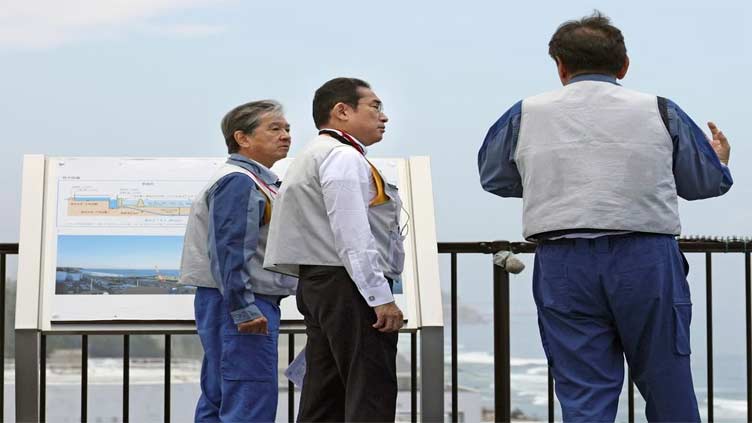Japan's Kishida to meet fishermen on Fukushima water release plan

World
Japan's nuclear regulator approved the plan after it got the nod last month from IAEA
TOKYO (Reuters) - Japanese Prime Minister Fumio Kishida said he will meet fishermen as soon as Monday to seek their understanding of the government's plan to release radioactive water from the wrecked Fukushima nuclear plant into the Pacific.
Getting the tacit approval of organisations representing the fisherman is considered the final hurdle for the plan to release the treated waste water, a move the government says it wants to begin this summer.
The plan to release 1.3 million tons of water from the tsunami-destroyed plant as Tokyo Electric Power (Tepco) runs out of storage space, has been opposed by local fishing unions, caused concern among shoppers in South Korea and sparked import bans of Fukushima food products China.
"I would like to directly talk to the fishermen about the government's intentions," Kishida told reporters on Sunday after visiting the Fukushima facility, inundated by the 2011 tsunami.
He said his government would make every effort to ensure the safety of the water release and counter reputational damage. Releasing the water is a key step in decommissioning the Fukushima Daiichi plant and revitalising Fukushima, he added.
/cloudfront-us-east-2.images.arcpublishing.com/reuters/JG2B2T7AEFMXTHZ5RB4SLH6GMA.jpg)
Tepco has been filtering the contaminated water to remove radioactive isotopes, leaving only hard-to-remove tritium. The company will dilute the water to get the tritium below regulatory limits before pumping it into the ocean from a coastal site.
Japan's nuclear regulator approved the plan after it got the nod last month from the International Atomic Energy Agency (IAEA), which had conducted a two-year evaluation.
Kishida's government will decide as soon as Tuesday when to start releasing the water, likely late this month, Japanese media have reported. The prime minister declined to say when it would begin.
"The entire government will make a final decision after checking the status of the efforts to ensure safety and counter reputational damage," he said.

